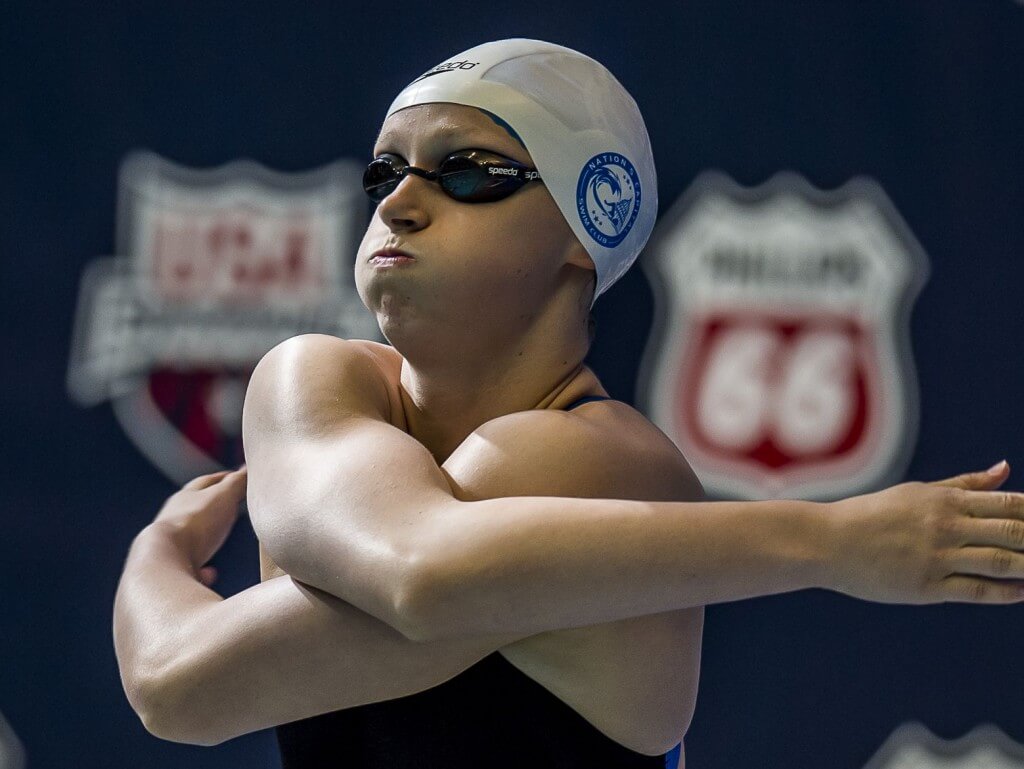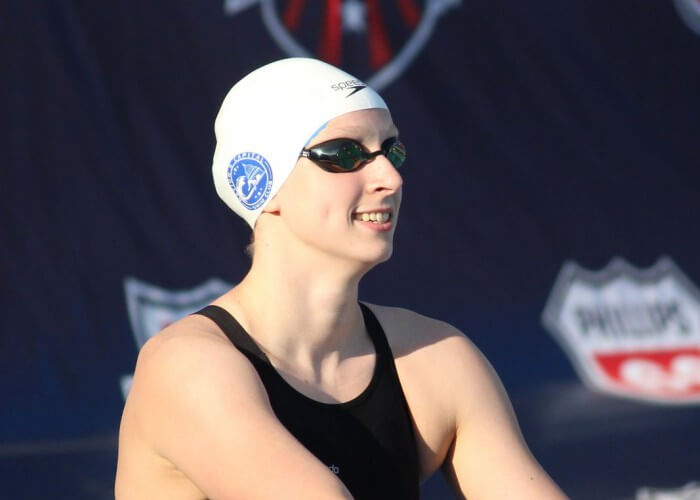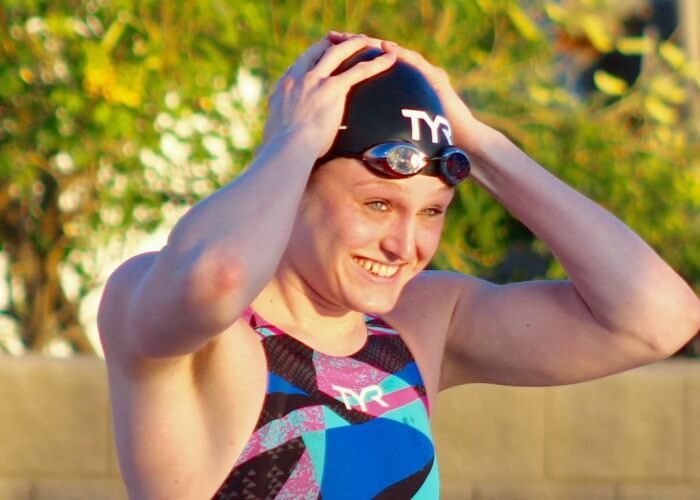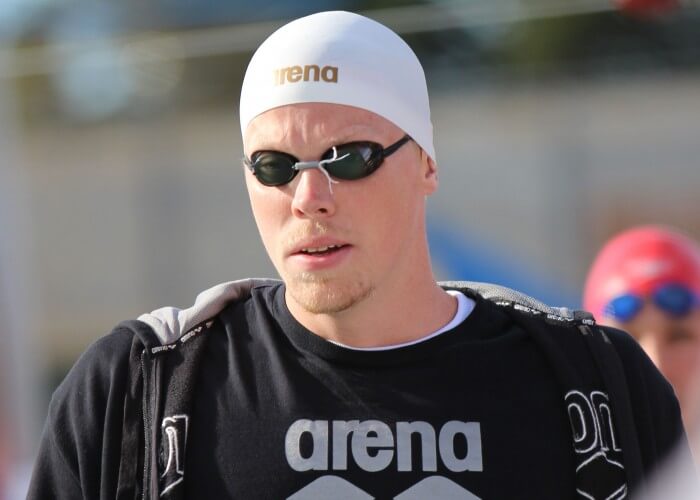Ledecky, Worrell and McLean Share Their Pre-Race Routines

By Makenzie Miller, Swimming World College Intern
Your big championship meet is here. It’s time to get ready for your races. What you do before you get up on that block should set you up to be at your best when you hit the water.
But how do you know if you’re preparing the right way? Do other people do the same pre-race routine as you or something different to relax and calm any butterflies? Is one way better than the other?
The answer is simply “no.”
Ledecky’s Lead In
There is no single way in which a swimmer should mentally prepare for his or her race. But according to Olympian Katie Ledecky, to get that confidence boost, the first thing she does when going into a race is “remain positive.” She says this helps her stay relaxed and focused on what she has to do.
Ledecky says remaining positive begins with trusting your training and listening to your coach. During her 800 free finals race during the 2012 Olympics, she said her coaches told her to concentrate on directing all the energy surrounding her into her lane.
“I felt much less nervous for my finals race than my prelims race,” she said. Ledecky not only won the race, but broke Janet Evans’ 23-year-old American record in women’s 800 free.
Yet, Ledecky admits that doing everything you need to do in practice is probably your best preparation to ensure you achieve your goals.
“I always try to put in the work in training so that I can feel confident, relaxed and focused on race day,” Ledecky says.
Worrell’s Windup
NCAA Champion Kelsi Worrell agrees. The University of Louisville junior believes that there’s not a whole lot to do before your race that can replace what you’ve done in practice.
“It is the thousands of yards swum in the months prior that prepare a swimmer,” Worrell says. She believes that if you know you’ve done everything right in practice, then that’s all the confidence you need going into a race.
Still, before races, Worrell enjoys chatting and having a good laugh before she gets on deck. This also helps her stay relaxed, rather than get her heart rate up more.
“I like to prepare for a race by talking and having fun with my teammates. Laughing is one of my favorite ways to get ready for a race. I try not to overthink my swimming, so spending time with them helps me to relax.”
McLean Scheme
Olympian Matt McLean uses a different approach just before a race. He says he likes to stay introverted and focused. He enjoys listening to music, preferably Metallica, which helps him zone out all possible distractions.
McLean is all about doing things to increases his sense of control, like dealing with nervousness. He harnesses nervous energy by changing his perception of the feeling and turning it into a positive force.
“Being nervous before a race is entirely normal,” McLean says. “It simply shows that you care. I encourage young athletes to familiarize themselves with this feeling, and frame it accordingly.”
But McLean also agrees with Ledecky and Worrell about what you do during practice make all the difference.
“By the time the big race rolls around for me, I’m plenty pumped because I know that I’m finally going to get a chance to reap the benefits of the work that I’ve put in.”
Find Your Routine
There are many different ways one can prepare for a race or quell pre-race jitters. Some swimmers may have regular pre-race routines to eliminate distractions while others use distractions to keep them relaxed. Both can be essential, especially at international meets, where the unexpected can arise according to McLean.
“Part of being an elite athlete is being able to deal with these [problems] and perform at a high level. Pre-race routines are important and give you a greater sense of control. Regardless, it is important to be able to go with the flow,” McLean says.
So for those who are still trying to find their own routine to get mentally prepared before they get on that block, Worrell has a mantra for you.
“Remember, swimming is fun. That’s why we do it in the first place.”






